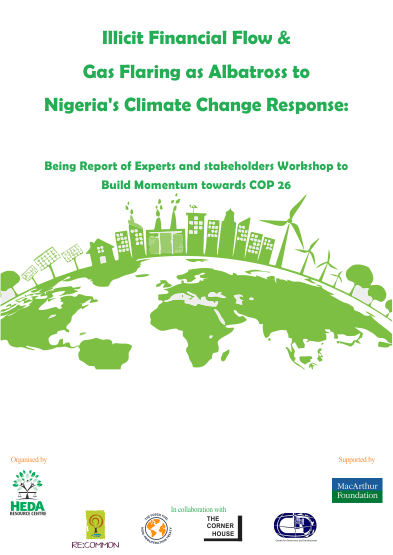As the world once again gather, this time in Glasgow, Scotland, for the 26th Conference of Parties (COP 26), the UN Climate Change Conference which holds from November 1 to November 12, 2021, the African continent and indeed Nigeria needs a more strategic approach to make the best of the conference if it indeed will survive its climate change challenges. Put in the words of US climate envoy, John Kerry, this conference is “the last best chance the world has to come together in order to do the things we need to do to avoid the worst consequences of the climate crisis”.
There are various tragic dimensions to Africa’s climate change phenomenon: historically and by the current per capita distribution, Africa is the least contributor to climate change; yet, Africa remains the theatre of climate change effects in terms of droughts, flooding, erosion, etc; the continent is the least able to cope with the reality of climate change and the most vulnerable given its economic and resilience situations.
Although, no region of the world will be entirely spared by climate change, the negative impacts are likely to fall most heavily on nations in the tropical regions, even though historically the peoples of these regions are not responsible for the rise in global greenhouse gas levels. Despite contributing just 1.1% of global gas emissions, Nigeria will be one of those hardest hit. Indeed, communities throughout Nigeria are already experiencing the consequences of climate change-related drought, desertification, flooding, land degradation, declining freshwater resources, loss of biodiversity, polluted air and crop failures. If action is not taken to curb greenhouse gas emissions, scientists warn that coastal cities such as Lagos and much of the land in the Niger Delta could be lost to storm surges and flooding. Those most at risk are the poorest communities.
Even though it is a problem, climate change also comes with opportunities, but the real business and financing of climate change is not coming to Africa. Rather, the continent loses both its natural resources and the credits it ought to get from it. Yet, developed countries are not providing Africa with the promised support based on the commitments to the Green Climate Fund and the commitment of Annex 1 Countries to Non-Annex 1 Countries.





